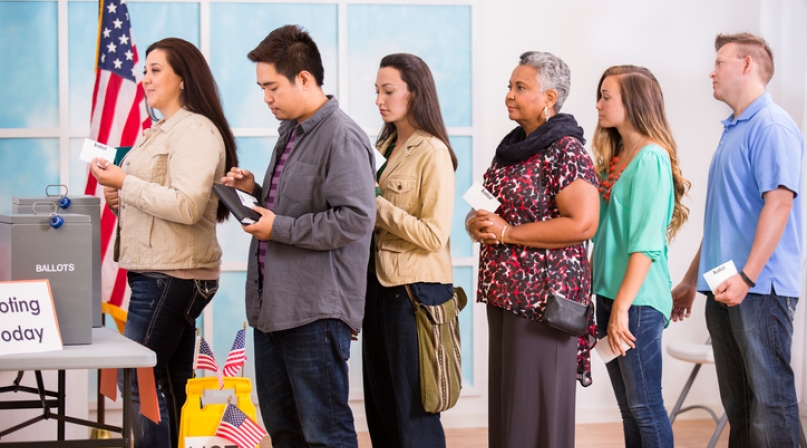Culling voter rolls ‘the Ohio way’ before Supreme Court

Supreme Court will decide whether states and local gov'ts can remove voters after periods of inactivity after notices
In Husted v. A. Philip Randolph Institute, the Supreme Court will decide whether federal law allows states and local governments to remove people from the voter rolls if the state or local government sends them a confirmation notice after they haven’t voted for two years, they don’t respond to the notice and then they don’t vote in the next four years.
While Ohio is being sued in this case, 12 other states use a similar process. The State and Local Legal Center (SLLC) filed an amicus brief in this case supporting Ohio.
The National Voter Registration Act (NVRA) says that roll maintenance procedures “shall not result in” people being removed from the polls for failure to vote. The Help America Vote Act modified the NVRA to say that states may remove voters if they don’t respond to a confirmation notice and don’t vote in the next two federal election cycles.
The Sixth Circuit struck down Ohio’s scheme, reasoning that it “constitutes perhaps the plainest possible example of a process that ‘result[s] in’ removal of a voter from the rolls by reason of his or her failure to vote.” According to the lower court, the problem with Ohio’s scheme is that the “trigger” for someone being removed from the voter rolls is their failure to vote.
Ohio argues that it doesn’t remove voters “’by reason of’ their failure to vote; it removes voters ‘by reason of’” their failure to respond to a notice. The state also claims that the NVRA doesn’t regulate what triggers the confirmation notice.
The SLLC amicus brief points out that thousands of states and local governments register voters and maintain voter rolls. Processes vary based on factors including state law and resources; so, states and local governments need clear direction and flexibility regarding what process they may use to maintain voter rolls. The brief points out that while in this case Ohio is being sued for the process it uses to take people off the rolls, states and local governments have been sued for keeping ineligible voters on the rolls.
Joshua Davis of Reed Smith wrote the SLLC brief which the following organizations joined: the National Conference of State Legislatures, the Council of State Governments, the National Association of Counties, the National League of Cities, the United States Conference of Mayors, the International City/County Management Association, and the International Municipal Lawyers Association.
NACo is a founder, a funder and a board member of the State and Local Legal Center (SLLC), headquartered in Washington, D.C. The center extends NACo’s advocacy on behalf of counties to the highest court in the land.
Attachments
Related News

County repurposes airport’s lost and found items for animal shelter
Broward County, Fla. staff made use out of items left behind at the county airport.

2024 Clearinghouse Awards: U.S. Election Assistance Commission recognizes county excellence in election administration
The U.S. Election Assistance Commission (EAC) announced the winners of its 2024 Clearinghouse awards, recognizing 32 counties for their election administration practices during the 2024 election cycle.

County Countdown – April 7, 2025
Every other week, NACo's County Countdown reviews top federal policy advocacy items with an eye towards counties and the intergovernmental partnership. This week features a budget reconciliation update, HHS restructuring and more.
